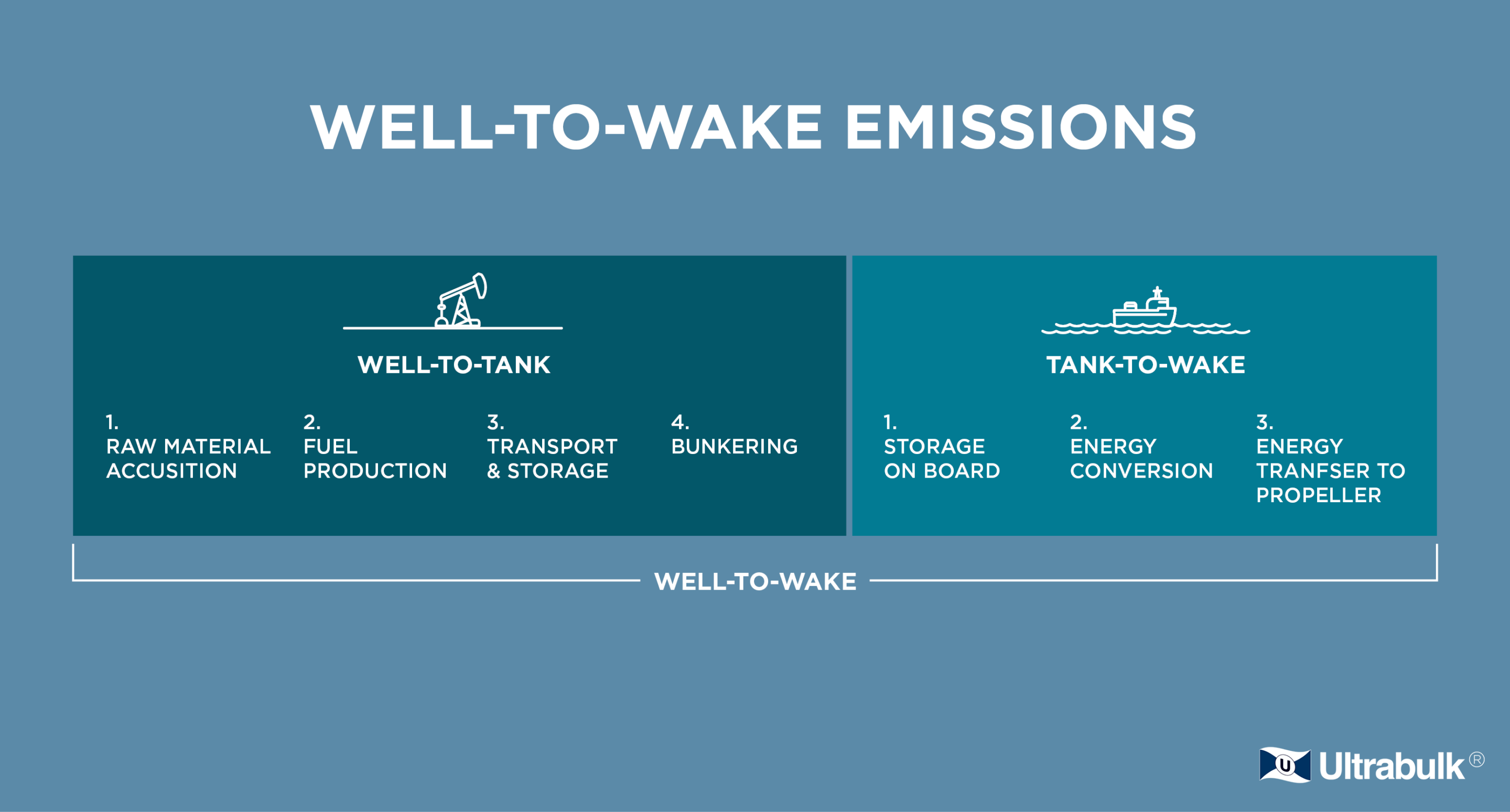Understanding the environmental impact of maritime fuel from production to usage is important, and the terms WELL-TO-TANK, TANK-TO-WAKE, and WELL-TO-WAKE EMISSIONS are key to this understanding. We have discovered that these terms can cause confusion, which is why we have made this simple guide to help you understand the terms and the process behind.
WELL-TO-TANK EMISSIONS, also known as upstream or indirect emissions, refers to the average of all the GHG emissions released from the production, processing, and delivery of a fuel. These are the processes that takes place ashore. It provides a comprehensive understanding of the environmental impact of different fuel options.
TANK-TO-WAKE EMISSIONS are the emissions resulting from fuel use onboard a marine vessel. This includes propulsion, energy generation, and auxiliary systems. It provides insights into the environmental impact of shipping activities, focusing on emissions from the vessel’s tank to the wake it leaves behind as it moves through the water.
WELL-TO-WAKE EMISSIONS cover the entire fuel production process, delivery, and use onboard the vessel, including all emissions within these stages. This provides a holistic assessment of environmental impact.
In Ultrabulk, we, as ship operators, primarily focus on TANK-TO-WAKE as a crucial first step to reduce WELL-TO-WAKE EMISSIONS. Our decarbonisation strategy centres on efficient ship design to minimise fuel consumption, operational efficiency, energy-saving technologies, and digital fleet management systems – just to name a few. To impact WELL-TO-TANK emissions, we place a strong emphasis on stakeholder collaboration to establish strategic partnerships to alter the course of the emissions.
When understanding these terms you can gain insights into the sustainable transportation practices. For a deeper dive into our commitment to sustainability and the innovative steps we are taking to ensure a greener maritime industry, visit our Sustainability page. Here you can learn more about our climate targets, GHG strategy and other initiatives.
